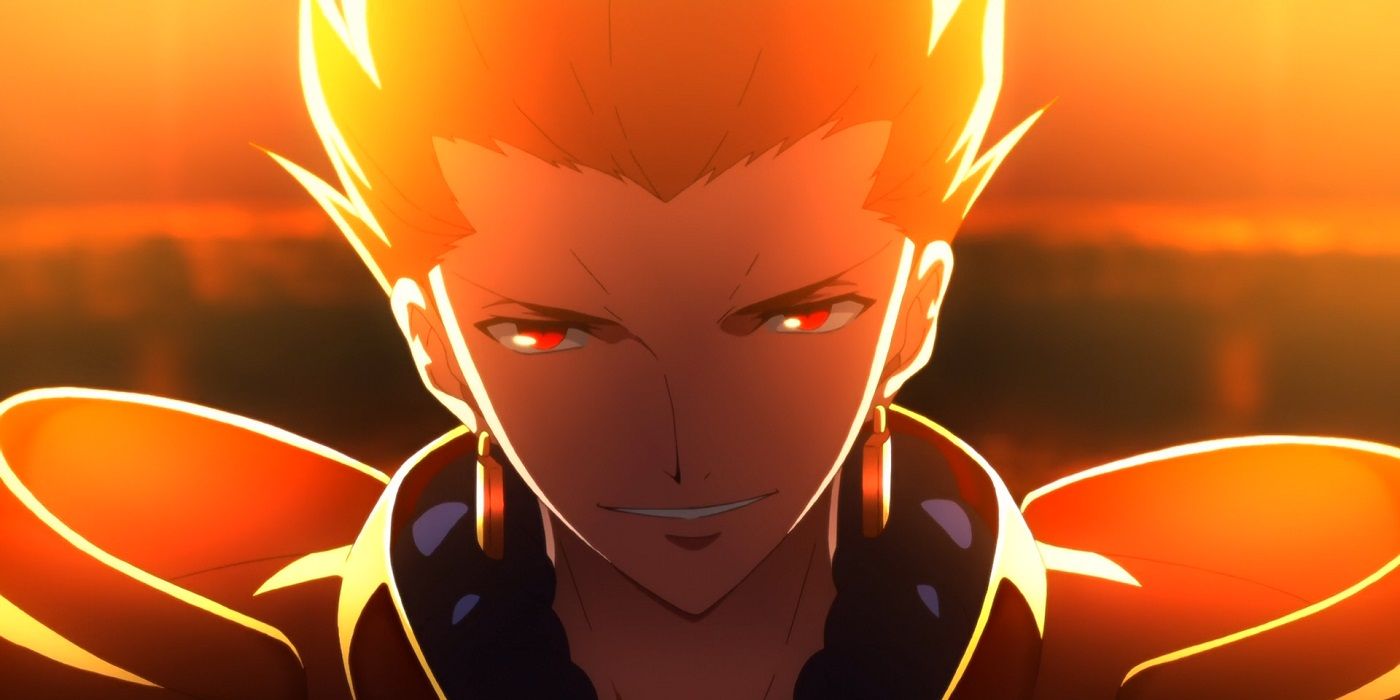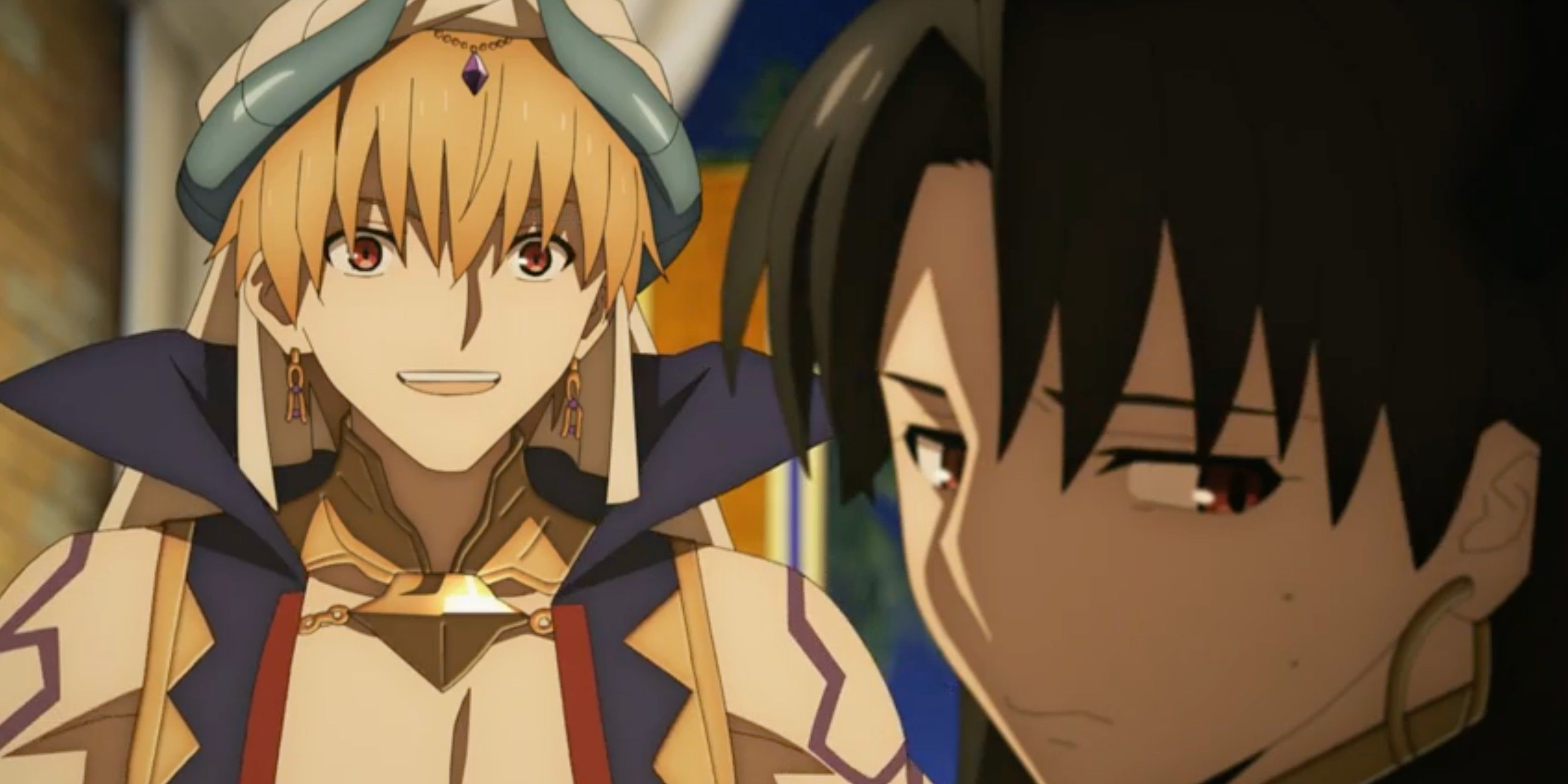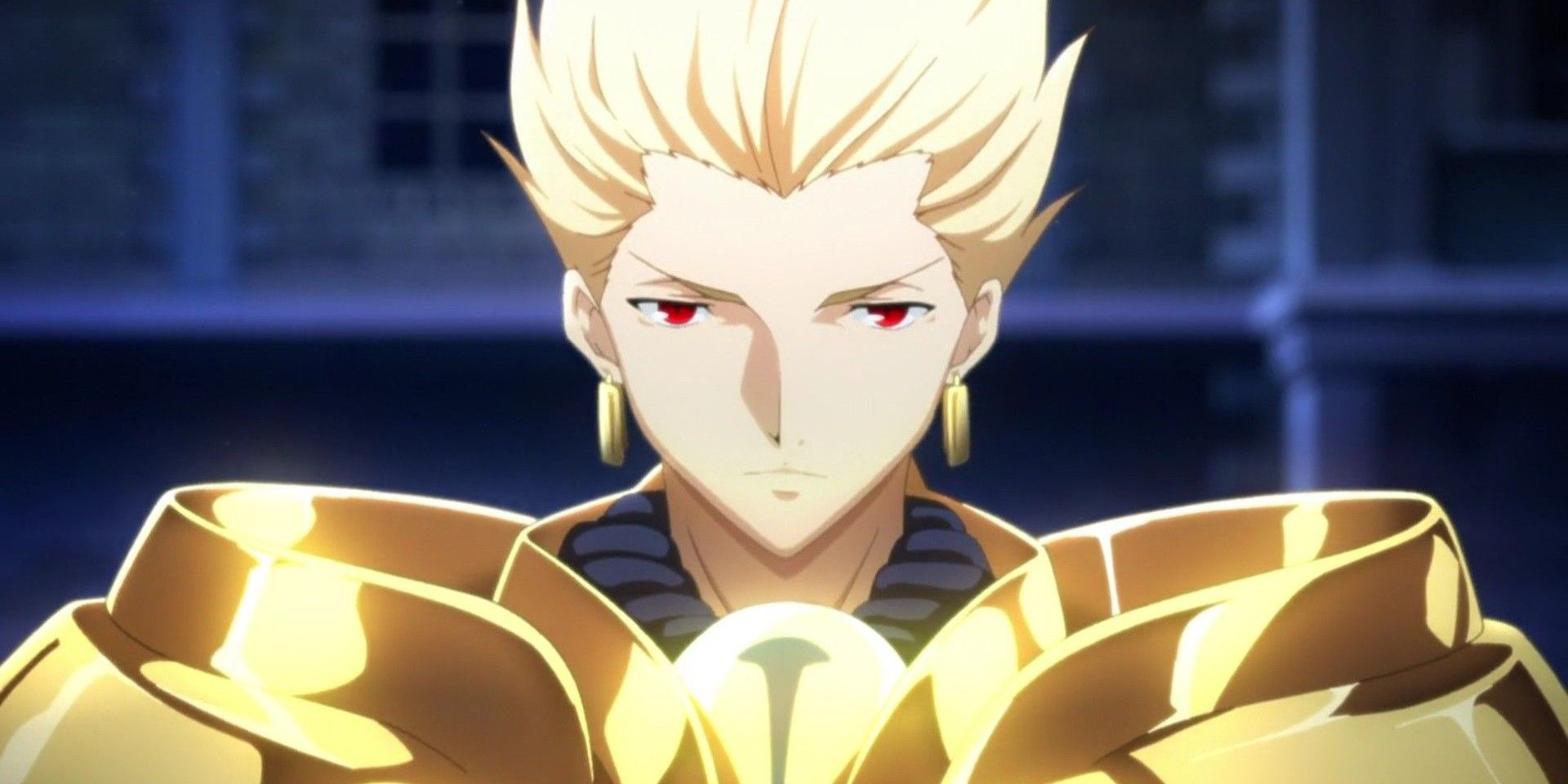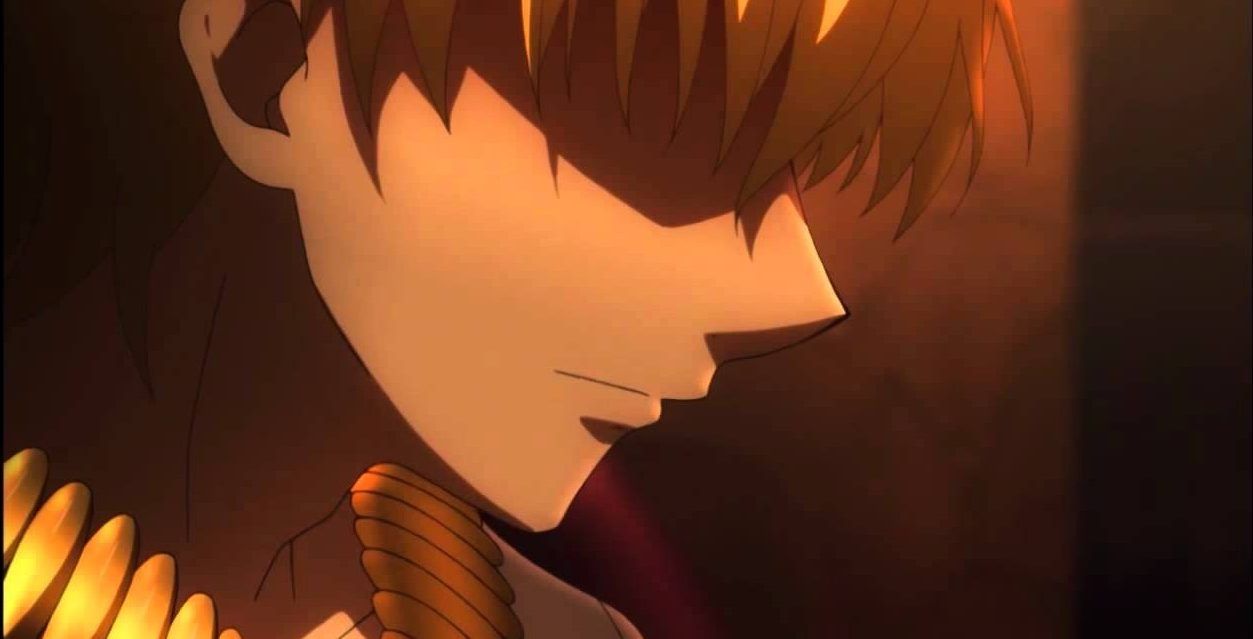Anime fans will know Gilgamesh well from his appearances in the Fate franchise. From villain in Fate/Zero and Fate/stay night to the heroic king of Uruk in Fate/Grand Order: Absolute Demonic Front Babylonia, Gilgamesh is a unique character in anime that holds more depth than a standard villain. From a genocidal maniac who believed he owned every treasure in the world to the cunning and heroic leader of Uruk's stand against the Three Goddesses, Gilgamesh develops extraordinarily throughout the franchise.
The character himself is a historical figure that lived around 2500 BC, and would become a legend after his death. That legend is The Epic of Gilgamesh, a poem chronicling the stories of his adventures. Legends are what Fate primarily draws upon, as it does for all of its Servants, and thus Fate's Gilgamesh shares many characteristics with his epic counterpart. However, the main point of difference her is that Fate Gilgamesh is a villain, though he doesn't exactly look the part. Hassan of the Hundred Faces and Hassan of the Cursed Arm are more representative of the "villain" stereotype, as masters of assassination that never reveal their faces, clothed in dark colors. Gilgamesh, meanwhile, is often seen dressed in his trademark golden armor. This doesn't give up antagonistic vibes so much as it represents power and wealth, or a man that doesn't see himself as the villain at all.
These are the exact traits Gilgamesh brings to Fate/Zero. His ideology remains the same, as he comes from a time where authoritarian kings held freedom and wealth, and even among such legendary rulers, Gilgamesh's tale is the first to be written. As such, he considers himself to be not only above all kings but also above all authority entirely, giving him ownership of the world and everything it holds. He is not just the greatest authority in the world, but the only authority in the world. All who oppose him are simply rebels, which is how he views Iskandar and Artoria.
With this in mind, it's clear how the ancient king of Uruk is characterized so differently in Fate/stay night and Babylonia. In the latter, he rules over a kingdom with subjects willing to fight the Lahmu and their own demise, even if it's futile. As the king, he represents the peak of Uruk's civilization in planning, magecraft, authority, wealth and more. In other words, he is the king of the city he devotes himself to, because Uruk is filled with what he believes to be people worthy of his governance. Unflinching perseverance towards an unattainable dream is what he values, and every citizen of Uruk is filled with that resolve against the forces of Tiamat, even when they know they cannot succeed.
Such resolve is heavily challenged by the modern world as depicted in Fate/stay night, a world where consumerism and technology have made humans able to do more at the cost of their resolve. No longer do people want to work by their own hands, but rather, they seek others to do the work for them. Persistence is replaced by fear and lack of action. To Gilgamesh, it's a world that's unworthy of his rule, and as the king of the world, he seeks to banish the unworthy out of his kingdom. Such is his motivation in the Fifth Holy Grail War: the banishment of the unworthy by manifesting and unleashing the Holy Grail, Angra Mainyu, on the world. Those that survive the calamity must be those who fight desperately for their lives even if all looks bleak, he reasons, and those are the (barely) worthy subjects he seeks to govern over.
That trait -- persistence in spite of futility -- is on full display when Gilgamesh interacts with Artoria. The famous Banquet of Kings in Episode 13 concludes with Gilgamesh remarking, "You needn't listen to him Saber. You are correct. Follow the path you believe in. The agony and conflict you wallow in as you bear the burden of a kingship too heavy for anyone...it's really quite pleasurable to see." On one hand, it can be seen as Gilgamesh revealing his sadistic side. A different interpretation that few have considered, though, is Gilgamesh is expressing a twisted admiration of Saber and the burden she carries. This is again displayed when he expresses admiration for her unwillingness to give in to his advances. As he owns everything in the world, Gilgamesh completely believes that Artoria inevitably belongs to him, though he admits her rejection of him is part of what makes her so beautiful in his eyes.
There's a clear central figure behind this ideology, and it's Enkidu: his dear companion in the adventures chronicled in the Epic of Gilgamesh. Having defied the gods, Gilgamesh was punished by having his best friend taken away from him, rendered a lifeless body of clay. It's the first moment in his life that Gilgmesh begins to know fear and fights against the inevitability of death. From there, he searches for immortality, which would allow him to defeat death and, in a sense, avenge Enkidu. Though the herb that grants immortality is stolen by a snake, his journey leads him to be the more mature version of Gilgamesh seen in Fate/Grand Order: Absolute Demonic Front Babylonia. Despite carrying the same beliefs, Gilgamesh no longer feels that it is necessary to act as judge, jury and executioner. "Simply do the things you want to do," he says to Kingu. It marks a departure from the authoritarian Gilgamesh we see in Fate/Zero and Fate/stay night, and he begins to have faith in humans and that they will do the right thing.




